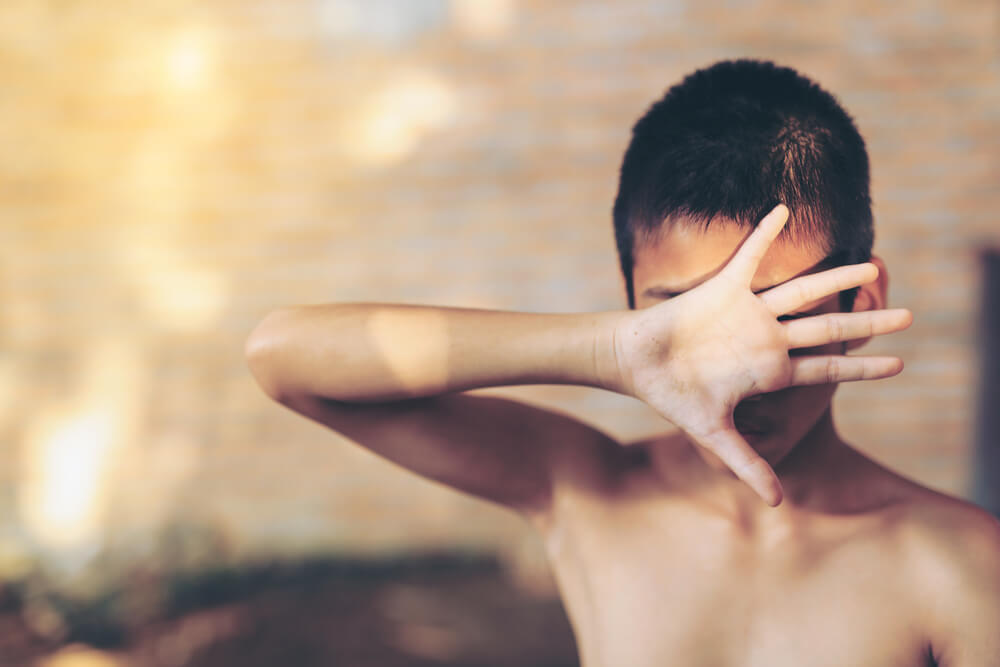Child sexual abuse among men is one of the most distorted and silenced horrors in recent history, girls and boys are victims, although figures show data that deserves to be studied and, in many cases, surprising in negative terms.
One study in Australia estimated that one in eleven children and one in four girls were victims of some form of sexual abuse in their youth.
- Although 97% of perpetrators are men.
- Most of the victims are also men; in particular.
- 26% of child victims of sexual abuse are men.
Similar surveys in the United States show very similar figures, which remains a concern. Many victims of child sexual abuse carry this experience for life as a burden they cannot get rid of.
Also, in many cases, trauma affects disguised: the person doesn’t feel well, but can’t identify why.
Women emerge gradually and painfully from the culture of silence surrounding this type of sexual abuse, but men who were sexually abused as children are only beginning to denounce what they have long silenced.
It is extremely difficult for a child or adult man to be sexually assaulted as a child, they are made to believe that they are destined for a position of power and that the weak are dominated.
Accepting the role of victim means, for men, recognizing deep fragility, delying into an emotional field that, in many cases, no one has taught them to explore. A very cruel feature of male education that is instilled in children from an early age.
When a man confesses to being a victim of sexual abuse, he exposes his “masculinity”: attack, disbelief and doubt in his environment about his sexual orientation. That way, his punishment doubles.
These children often react to abuse with disbelief. Can’t you believe that? The immediate reaction is to think that others won’t believe it either.
Sexual abuse of children among men is not so much a matter of sexual arousal on the part of the perpetrator as an exercise in control, humiliation and power over the victim.
When victims are men, the fact can also leave a very deep wound in relation to their gender identity, masculinity and future love relationships, wounds very difficult to heal.
Sexual violence is much more than physical violence. The psychological abuse and stigma associated with abuse are much greater than physical aggression.
Understanding that this type of violence is a matter of power is critical to begin to understand what are the real and deeper harms caused by child sexual abuse in men.
The sexual abuser who abuses a child plays with his adult power and always does so in the fine line of the victim’s inability to clearly distinguish between sexual intercourse with or without consent.
This creates a feeling of guilt in the overflowing child: to manage what has happened to him, he needs an emotional maturity much greater than he has. Hence the drama, hence the danger.
Many people still find it difficult to understand that men’s sexual violence against men is an extension of patriarchal domination.
In many cases, we think it’s a system that gives men power over women, but it actually gives men power over the weakest or most helpless.
A really dangerous game that our culture has long wanted to hide, a system in which we must stop fighting for gender and start doing it as human beings, because it has been absurdly harmful to men and women.
The psychological consequences of children who are victims of sexual abuse have characteristics that are common to those experienced by girls: depression occurs almost immediately in both cases, as do feelings of guilt and low self-esteem.
Self-esteem is severely damaged in all cases of sexual abuse, when abuse is not exposed and continues to repeat itself over time, feelings of shame, dirt, pain and helplessness multiply The child lives in a world he cannot control and attacks him without being able to do anything to prevent it.
Add to this the fact that, in the case of children, these events occur at a critical time in the development of their identity, the consequences are potentially devastating.
When the victim is a child, for all of the above, there are many social pressures and fitness patterns that prevent him from accepting that he has been abused.
In addition, a deep gap in their gender identity is often created that they are not always able to save for themselves, all of which prevents them from starting to heal a trauma that looks like a cutting weapon that hurts more and more over time.

